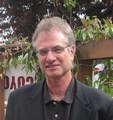FLASHBACK TO 2005: “Water Sustainability Action Plan for British Columbia provides a partnership umbrella for on-the-ground initiatives,” stated Kim Stephens, lead person responsible for program delivery, a year after Premier Gordon Campbell approved release of the Action Plan

“The goal is to influence choices and encourage action by individuals and organizations so that water resource stewardship will become an integral part of land use and daily living,” stated Kim Stephens. “The Province’s commitment to the Action Plan speaks for itself. Both the Ministry of Environment and Ministry of Municipal Affairs have provided core funding over a multi-year period to sustain Action Plan efforts. In addition, and through participation in various inter-governmental partnerships, a number of Ministries have contributed substantial funding and in-kind support to help launch Action Plan elements.”










